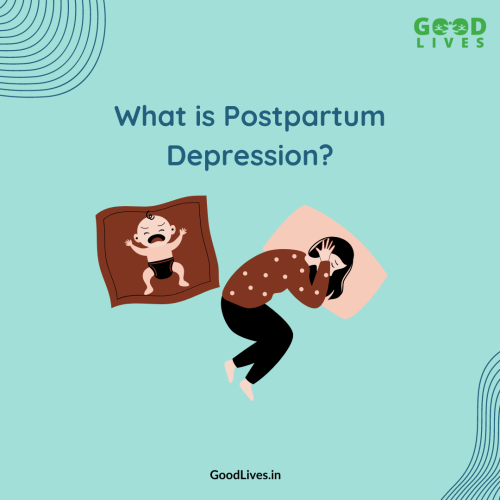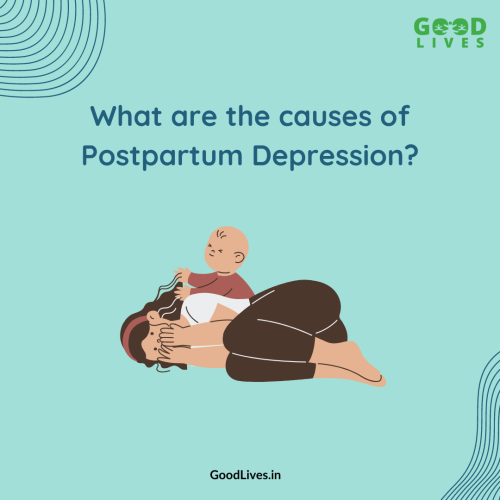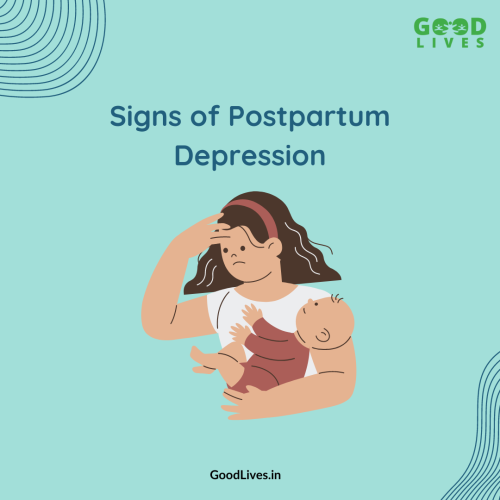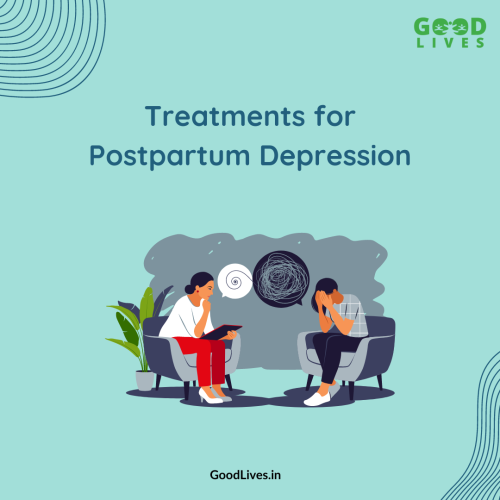
Postpartum depression is a common and serious mental health condition that can occur after giving birth.
In simple terms, it means persistent sadness, hopelessness, and a lack of energy after the mother has parted with the baby (given birth). A woman’s entire way of living drastically changes when she becomes pregnant. It initially has little effect, but as the due date approaches, the lifestyle drastically transforms. The changes in her daily routine not only cater to her own needs but also to the baby’s needs.
What are the Causes of Postpartum Depression?

A woman’s body produces higher levels of estrogen and progesterone, which help to support the growth and development of the fetus. After childbirth, these hormone levels drop rapidly, which can lead to a variety of physical and emotional symptoms, such as fatigue, mood swings, and depression.
This hormonal shift is thought to be one of the primary causes, as it can disrupt the delicate balance of chemicals in the brain, leading to feelings of sadness, hopelessness, and anxiety. The sudden drop in hormones can also lead to feelings of overwhelming fatigue, making it difficult for new mothers to cope with the demands of caring for a newborn.
Becoming pregnant means adopting a new lifestyle, adjusting to having a baby, adhering to a strict timetable, and visiting the doctor frequently. She goes through so much during this time that when she finally gives birth, she feels detached and distanced from herself, from all that she was feeling throughout the 9 months, mentally and physically, and because of that abrupt transition, she experiences stress, worry, fatigue, hopelessness which is another cause of postpartum depression.
Signs of Postpartum Depression

Some of the crucial signs include a persistent feeling of sadness, hopelessness, and emptiness. After delivery, mothers dealing with postpartum depression often lose interest in activities that were previously enjoyed. Mothers do not feel like doing anything, not even engaging in activities they loved before. They usually feel like they don’t have the energy to do anything and have difficulty completing even the basic tasks.
Mothers experiencing postpartum depression have difficulty sleeping or they sleep too much due to the stress and anxiety that they face during this time. Not only sleep but there are major changes in appetite and weight. Postpartum depression also results in mothers feeling worthless and guilty because they think that they are not able to deliver to the child like they want to.
- Difficulty bonding with the baby or feeling indifferent toward the baby
- Difficulty concentrating or making decisions
- Feelings of worthlessness or guilt
- Thoughts of self-harm or suicide
Treatments for Postpartum Depression:

Fortunately, there are many effective treatments available for postpartum depression. The most common treatment for postpartum depression is therapy, which can help a new mother understand and work through her feelings. Therapy will help a new mother understand why she is feeling the way she is and how she can overcome and become mentally healthy.
Cognitive-behavioral therapy (CBT) and interpersonal therapy (IPT) are both effective forms of therapy for postpartum depression. New mothers tend to have certain high expectations of themselves and have this notion of being the perfect mother which directly and indirectly puts them in a stressful position which cognitive behavioral therapy can extensively help with.
It will help a mother to shift the way she thinks and reacts to certain expectations she has for herself. It will also help a mother to shift her thinking to a more realistic one, that a mother cannot be perfect, and there are mistakes that each mother makes. CBT is a successful postpartum depression treatment.
Medication is another treatment option for postpartum depression. Antidepressants, such as selective serotonin reuptake inhibitors (SSRIs), are commonly prescribed for postpartum depression. SSRIs appear to be efficacious and well tolerated in the treatment of postpartum depression, but the available evidence fails to demonstrate a clear superiority over other treatments. It is important to discuss the potential risks and benefits of medication with a healthcare professional before starting any new treatment.
Support groups can also be a valuable resource for women with postpartum depression. These groups provide a safe and supportive environment for new mothers to share their experiences and receive support from others who are going through similar challenges.
It is important to note that support groups are not the right treatment option for everyone. Some women may prefer individual therapy or medication, and it is important to work with a mental health professional to determine the best treatment plan.
It is important to remember that every woman is different, and the best treatment plan will vary depending on the individual’s needs and preferences. With the right support, it is possible to overcome postpartum depression and be the best mother you can be.
Postpartum depression can feel isolating, but help is within reach. The GoodLives App offers access to compassionate therapists, soothing meditation practices, and a wellness library designed to support new mothers on their healing journey because you don’t have to face it alone.
0 Comments